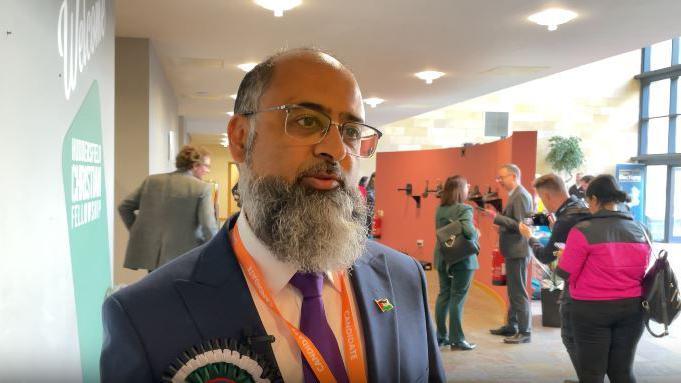The low turnout area 'not interested' in voting
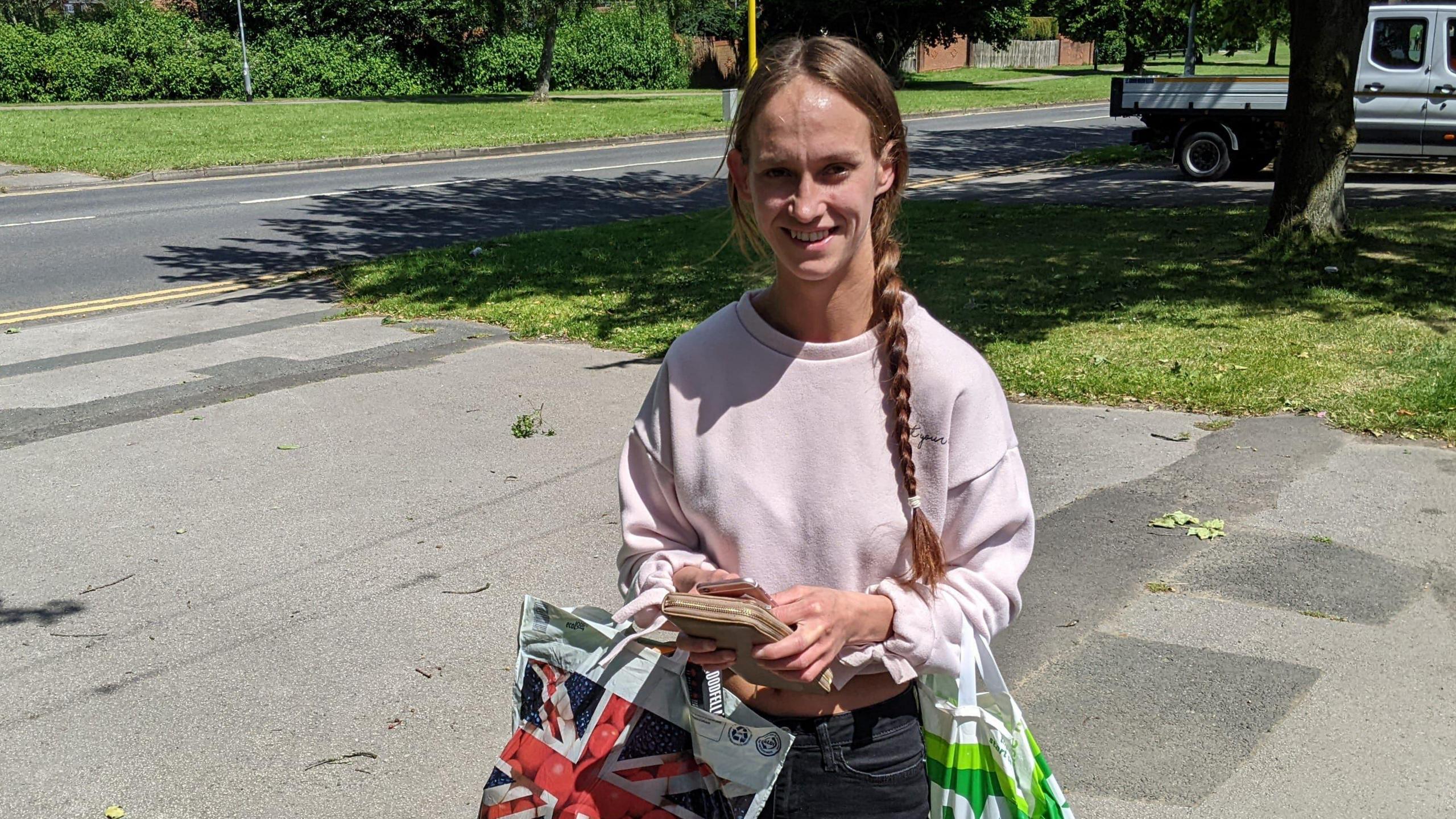
Jessica Ligh has only previously voted once
- Published
The newly-created constituency of Leeds South saw the second lowest election turnout of anywhere in the UK.
Won by Labour's Hilary Benn with more than half the vote share, just 42% of those eligible to vote chose to do so.
The BBC went to the suburb of Middleton, which is part of the constituency, to find out why.
In the shopping precinct at Middleton Park Circus on Friday lunchtime, there was little evidence that a general election had just taken place.
There were few political posters or placards on the lampposts and little chat about the change of government that has taken place.
Jessica Ligh, 28, is one of several people in the constituency who told the BBC they did not vote.
"I don't really know how it all works," she admitted. "I don't really follow it, or watch the news."
Jessica said she did vote once, around 10 years ago.
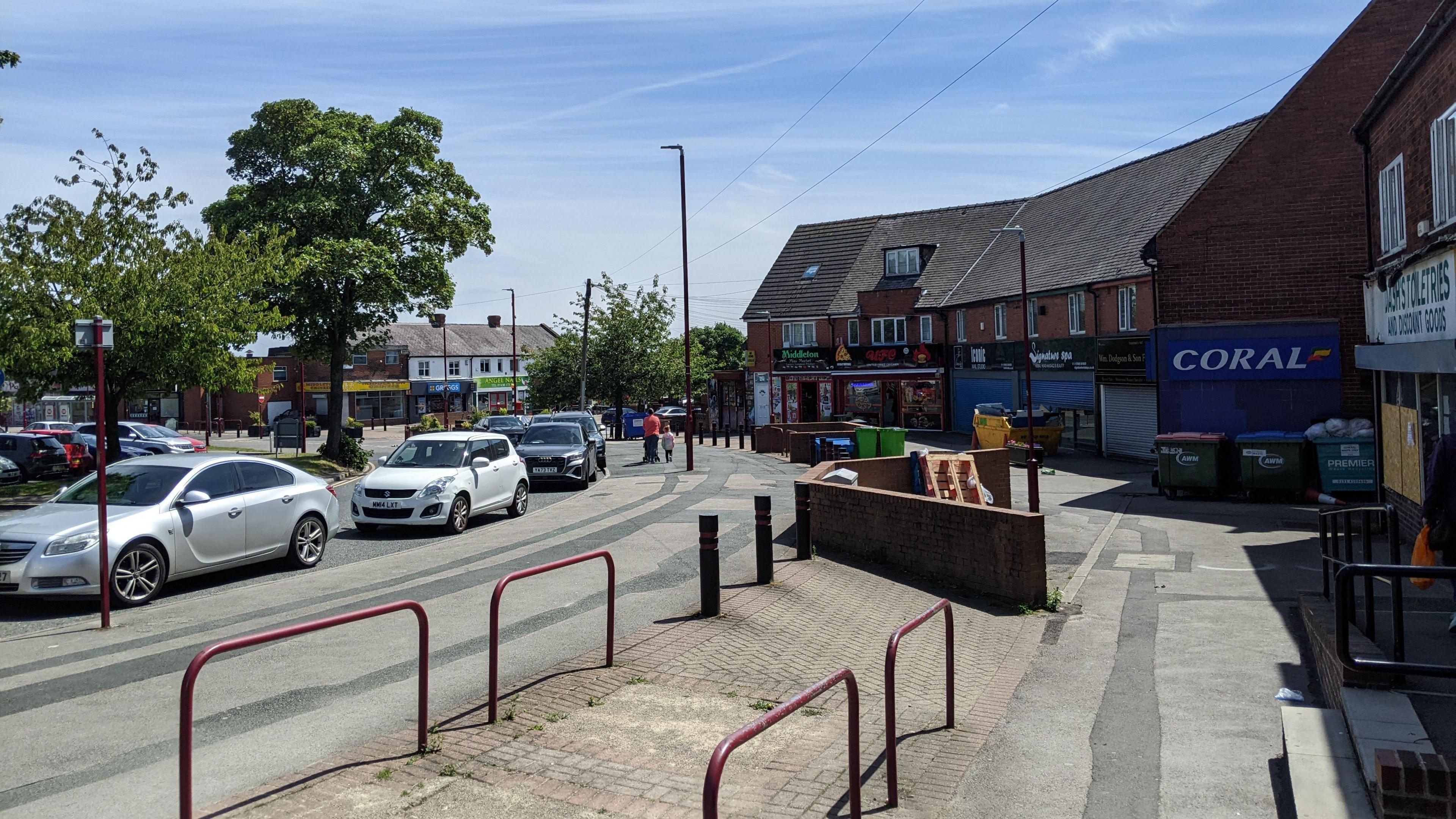
Middleton Park Circus, in Middleton, which forms part of the new Leeds South constituency
But even if she wanted to do so again, she said she did not have the required ID. This general election was the first where voters had to show identification to take part.
That issue and the general pressures of day-to-day life were factors she believed might be behind the low turnout in the area.
"The ID is just another stress, another process I'd have to go through," she added.
"You have to go out of your way to vote. I just think the majority of people round here won't do it."
It's a feeling echoed by 20-year-old Lewis Allen, who said that due to his busy working life, he had "not really thought" about politics a great deal.
"I'm a bit oblivious to it, to be honest," Lewis said.
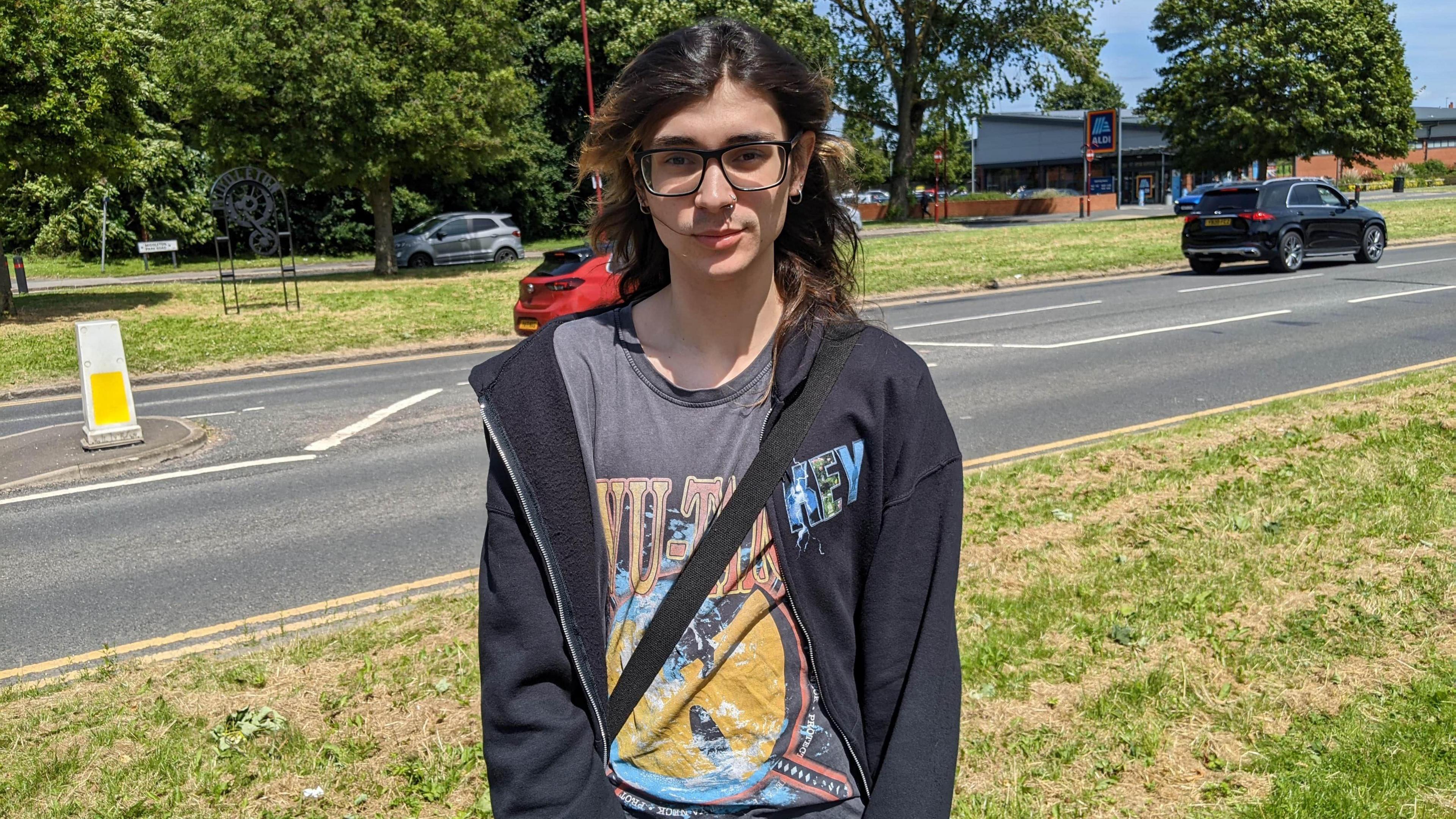
Lewis Allen admits he is "oblivious" to politics
He said he was unsurprised the area had a low turnout, adding: "I think people round here don't really care as much. They'll have their reasons."
Standing at a bus stop wearing a Leeds United shirt was John, who said he had never voted.
"I'm not interested in politics," he sad. "The parties are all the same.
"I don't think people bother voting in the way they used to."

Ashleigh Watkins, 30, said the election "just passed me by". "Voting is not something I've ever done," she added.
Mark Livsey, from nearby Belle Isle, was not so much apathetic as he was angry.
He normally supports the Conservative Party, but on his ballot paper on Thursday he backed the Christian People's Alliance, which secured 1% of the vote in Leeds South and finished seventh out of eight.
"Look at the state of this town," Mark, 49, says, gesticulating at the surrounding area.
"People have had enough. You can't blame them. Politicians need to start working in this town."
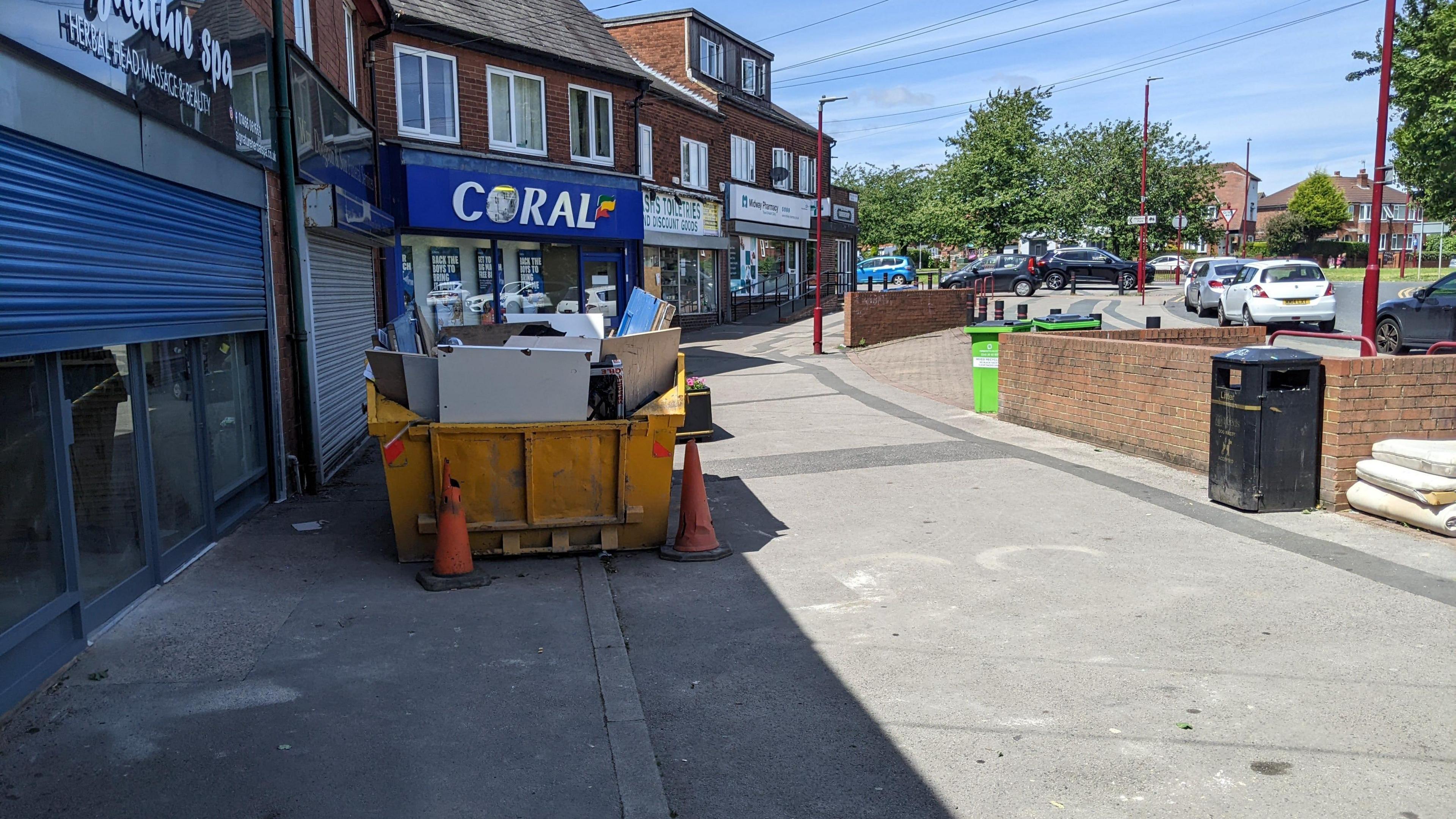
There were few posters and placards to be found in the community on Friday
Disillusionment with the main parties is not unprecedented in Middleton.
Traditionally a Labour supporting area, the city council ward that covers the area is now represented by three councillors from the Social Democratic Party (SDP).
Started as a breakaway party by disaffected Labour MPs in 1981, the main rump of the SDP merged with the Liberal Party seven years later to create the Liberal Democrats.
SDP members unhappy with the merger kept the party alive with minimal exposure in the years that followed, although the party's profile is beginning to rise slowly again.
Some roadside placards bearing the party's name could be found on the verges around Middleton, though the SDP could only finish in fourth place in Leeds South after Thursday's vote.
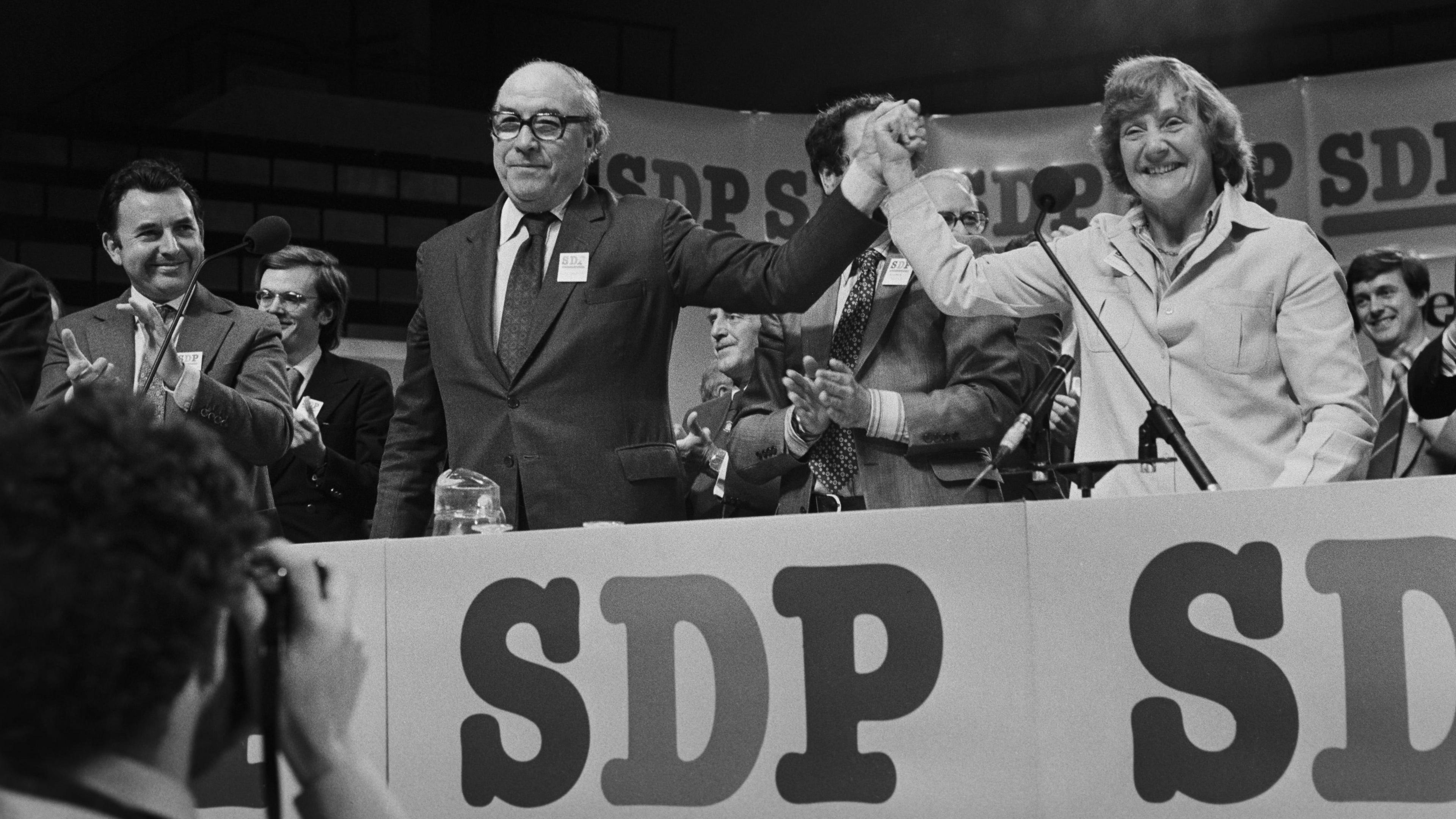
The SDP, prominent in the 1980s, now have three councillors in the Middleton Park area
A common theme among people the BBC spoke to was a feeling that the main parties had become indistinguishable from one another.
"Labour used to be for the working class and it's not like that anymore," said 71-year-old Sheila Collis.
"I don't like Keir Starmer or anything he says and the Tories are corrupt and greedy.
"It's a very traditional working class area is this and a lot of people just don't want to vote. They're not interested."
But although nearly 60% of voters in Leeds South chose not to vote, not everyone was politically estranged.
Byron Jones, 32, and Jordan Nelson, 33, both voted for the Green Party, citing its stance on LGBT rights and on the conflict in Gaza.
George Binns, 66, said he had planned to vote for Reform because he thought Nigel Farage "might do a better job".
However, the party did not stand in Leeds South, so he voted for Labour instead, as he has done throughout his life.
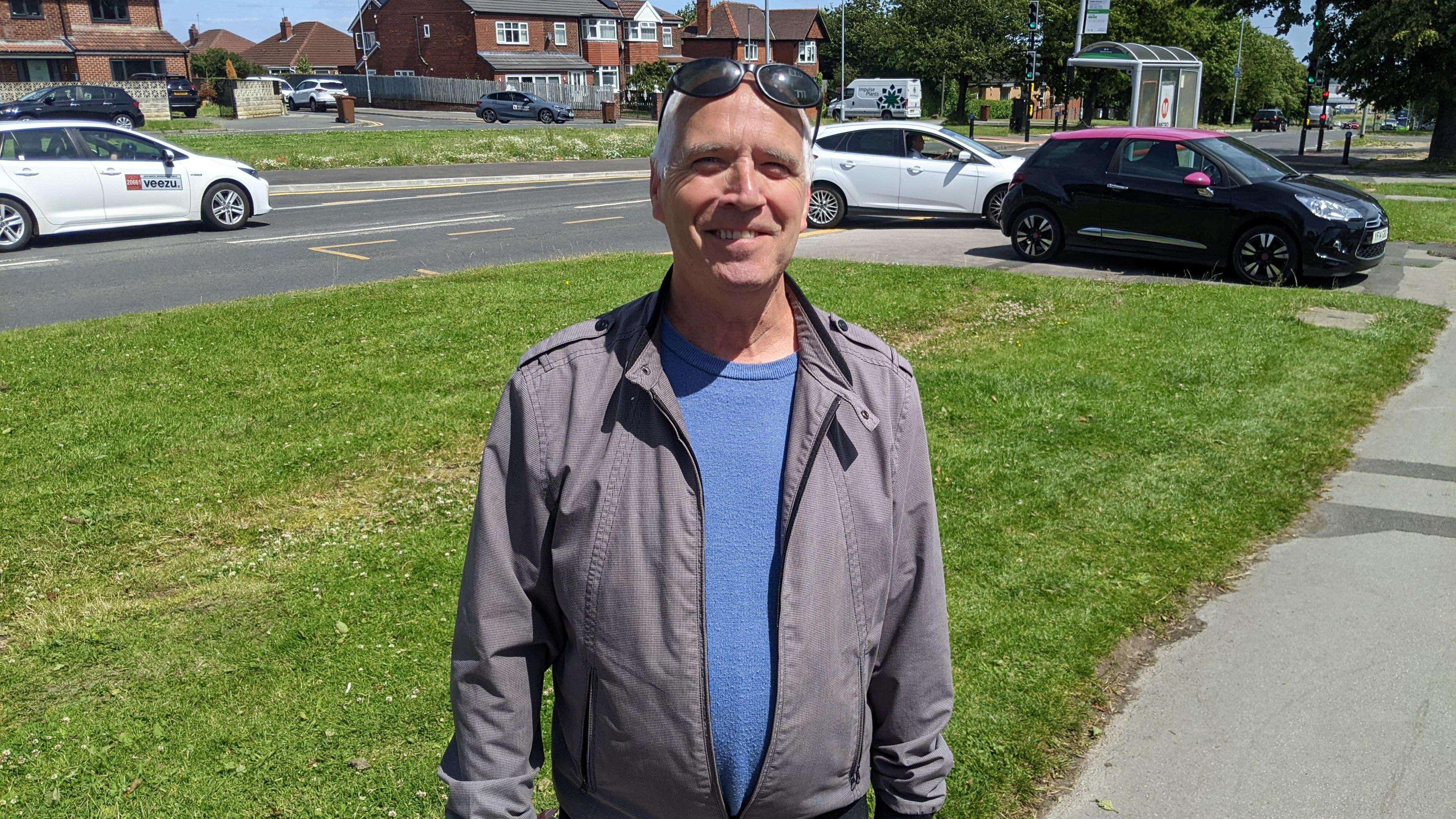
George Binns, 65, says he would have voted for Reform had they stood in Leeds South
"I was always going to vote," George said. "I have done since I was 18. My dad told me I had to back then!"
George said he could understand why there was apathy.
"I think it's on everyone's minds that they're not going to vote," he said. "Just because of everything that's happened since Brexit and since Covid. Boris Johnson has a lot [to answer for]."
Beyond Leeds South, only the Manchester Rusholme constituency, with 40%, had a lower turnout at Thursday's election.
But even in areas where voter turnout was higher, declining engagement is still a problem.
Richmond Park in west London, where nearly 76% of those eligible voted, had its lowest turnout at any General Election since 2005.
It was the same story in Sheffield Hallam, which with 71% had the highest turnout among any Yorkshire constituency.
With ballot papers counted and the removal vans completing the turnaround at Downing Street, nationwide campaigning will now take a back seat.
But the process of re-engaging an increasingly disenfranchised public with national politics is a challenge MPs are likely to be grappling with for a while yet.
Follow BBC Yorkshire on Facebook, external, X (formerly known as Twitter), external and Instagram, external. Send your story ideas to yorkslincs.news@bbc.co.uk, external
Related topics
Related stories
- Published5 July 2024
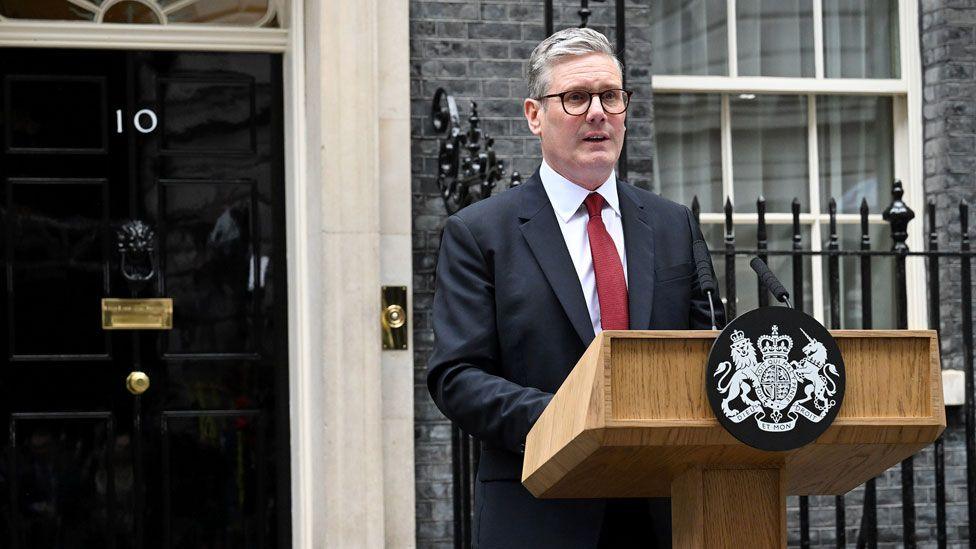
- Published16 September

- Published5 July 2024
